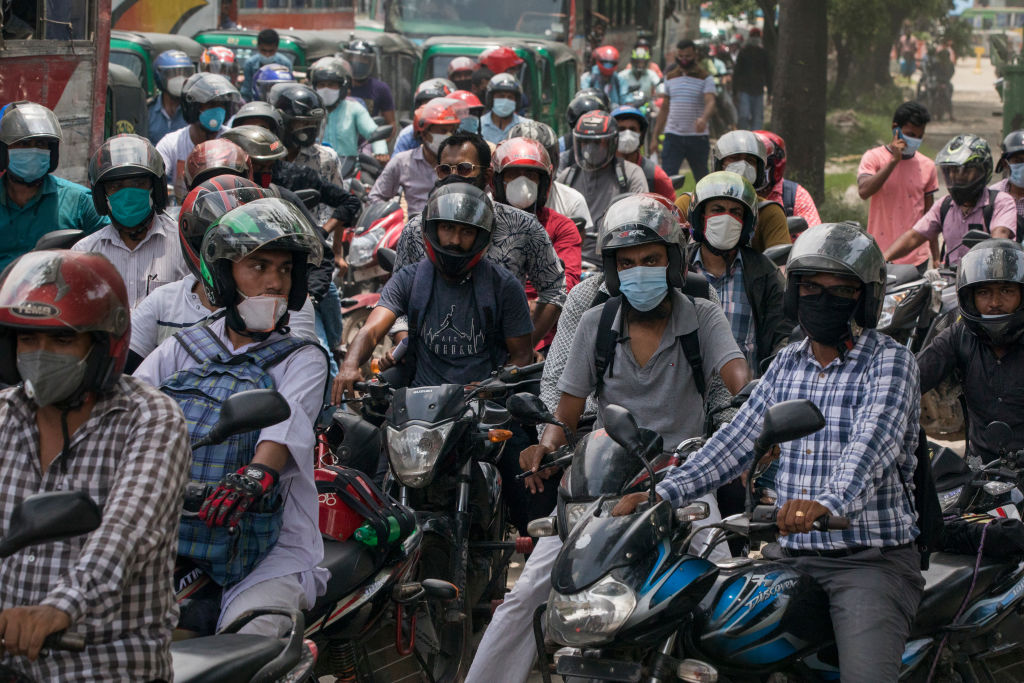
Temporary basic income payments could stem the spread of the coronavirus pandemic by allowing the world’s poorest people to stay at home, according to a new report from the United Nations Development Programme.
A six-month guaranteed handout for 2.7 billion living below or just above the poverty line in 132 developing countries would cost around $199 billion per month. Russia, for example, could lift 48 million people to the country’s “vulnerability threshold” for $5.3 billion per month — roughly 0.12% of GDP. India would need $18.4 billion to do the same for 658 million people.
Money for such efforts could come from a variety of sources, the agency said, including the reallocation of external debt service payments. The Group of 20 leading economies has offered a Debt Service Suspension Initiative to the world’s poorest nations that runs through December. So far, 42 countries have requested help under the plan, and $5.3 billion in repayments has been suspended.
“Unprecedented times call for unprecedented social and economic measures,” Achim Steiner, the UNDP’s administrator said in a statement. “A temporary basic income might enable governments to give people in lockdown a financial lifeline, inject cash back into local economies to help keep small businesses afloat, and slow the devastating spread of Covid-19.”
Income guarantees
Even before the pandemic, so-called universal basic income policies had been edging into the realm of the possible. In a 2016 pilot program in Finland, 2,000 residents received about $670 per month for two years, no strings attached. Tech executive Andrew Yang made $1,000 monthly payments a centerpiece of his brief U.S. presidential campaign. Now, with economies shuttered, emergency cash subsidies have emerged as popular measures in Spain, Japan, Australia and elsewhere.
Low-income countries have also initiated cash transfers. Togo, for example, has distributed more than $19.5 million in monthly payments to more than 12% of the population, mostly women working in the informal sector. But rich nations still account for the lion’s share of spending, Steiner said.
The UNDP authors acknowledged the significant challenges to this kind of wide-scale relief effort, including administrative and logistical obstacles. But, they say, the money to cover a half-year cash assistance plan is “within reach” for most developing countries in the world.
The plan would require 12% of the expected total financial response to pandemic in 2020, which is equivalent to one-third of what developing countries owe in external debt payments this year, the UNDP said. The program could also be funded by energy subsidies, after a decline in oil prices, and through emergency cash transfers.
It is particularly necessary in developing nations, where nine out of ten workers have informal employment and can’t earn money if they are at home, the agency said.
–With assistance from Yinan Zhao.
More Must-Reads from TIME
- Cybersecurity Experts Are Sounding the Alarm on DOGE
- Meet the 2025 Women of the Year
- The Harsh Truth About Disability Inclusion
- Why Do More Young Adults Have Cancer?
- Colman Domingo Leads With Radical Love
- How to Get Better at Doing Things Alone
- Michelle Zauner Stares Down the Darkness
Contact us at letters@time.com